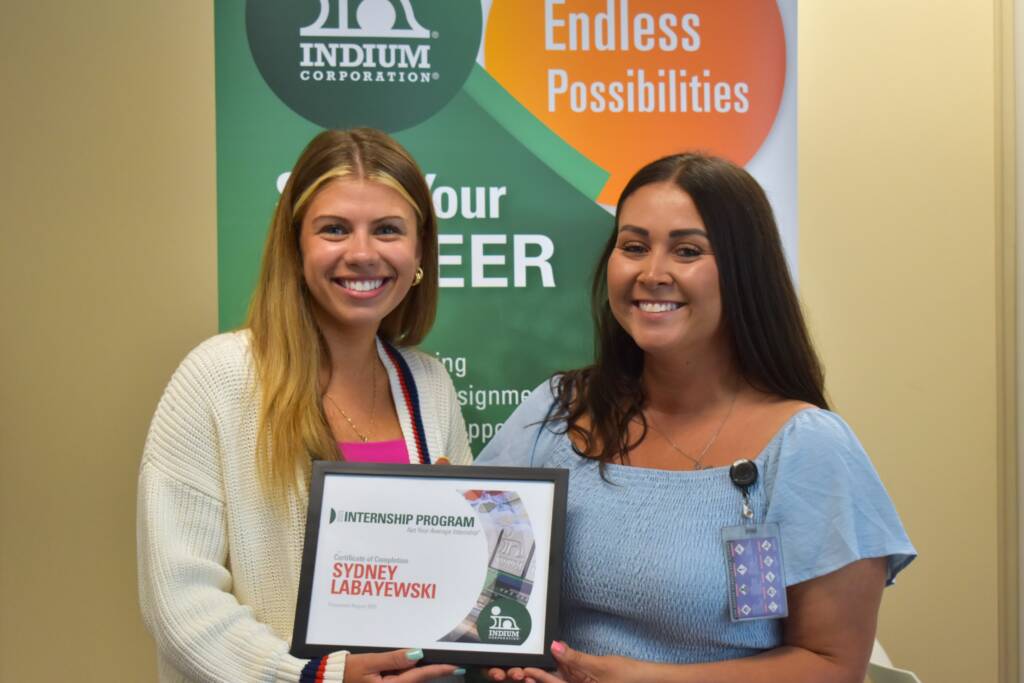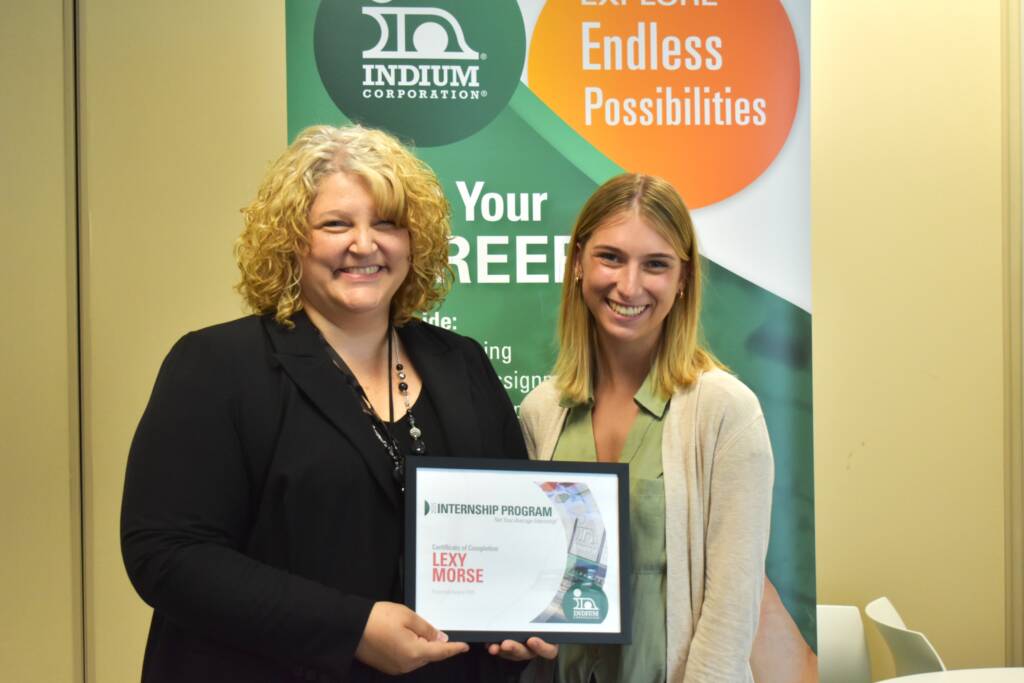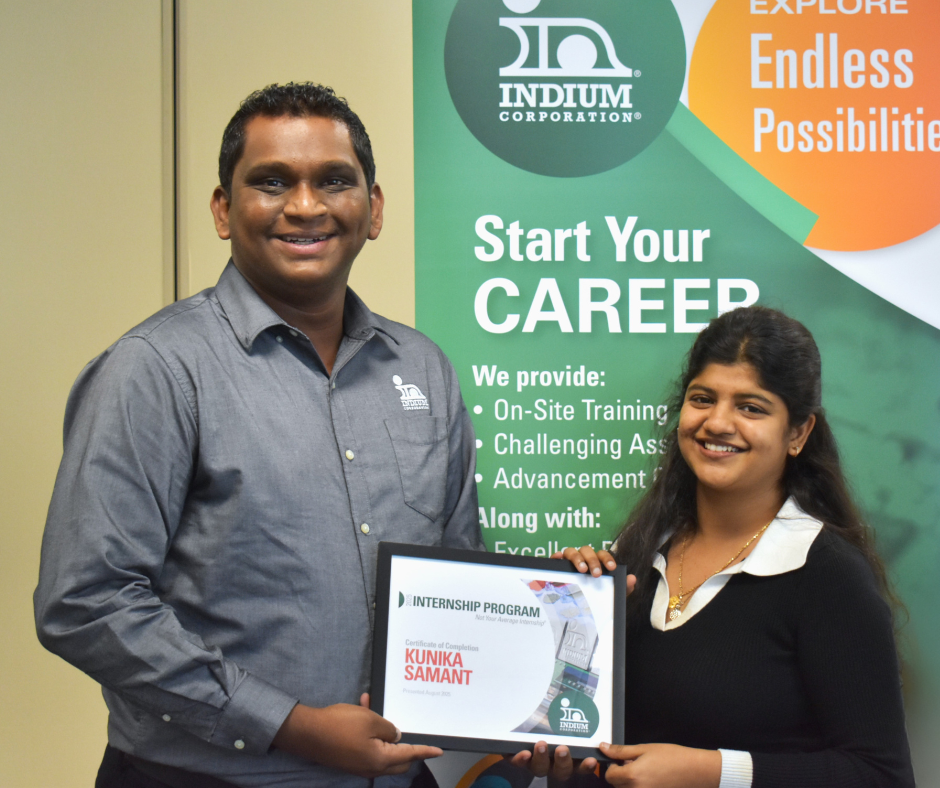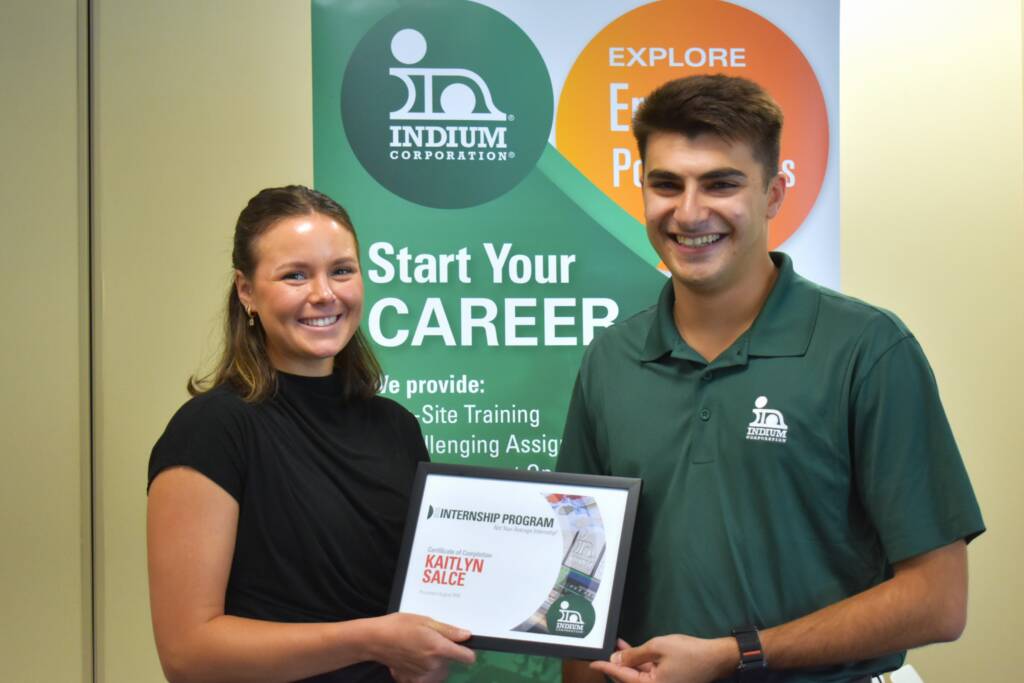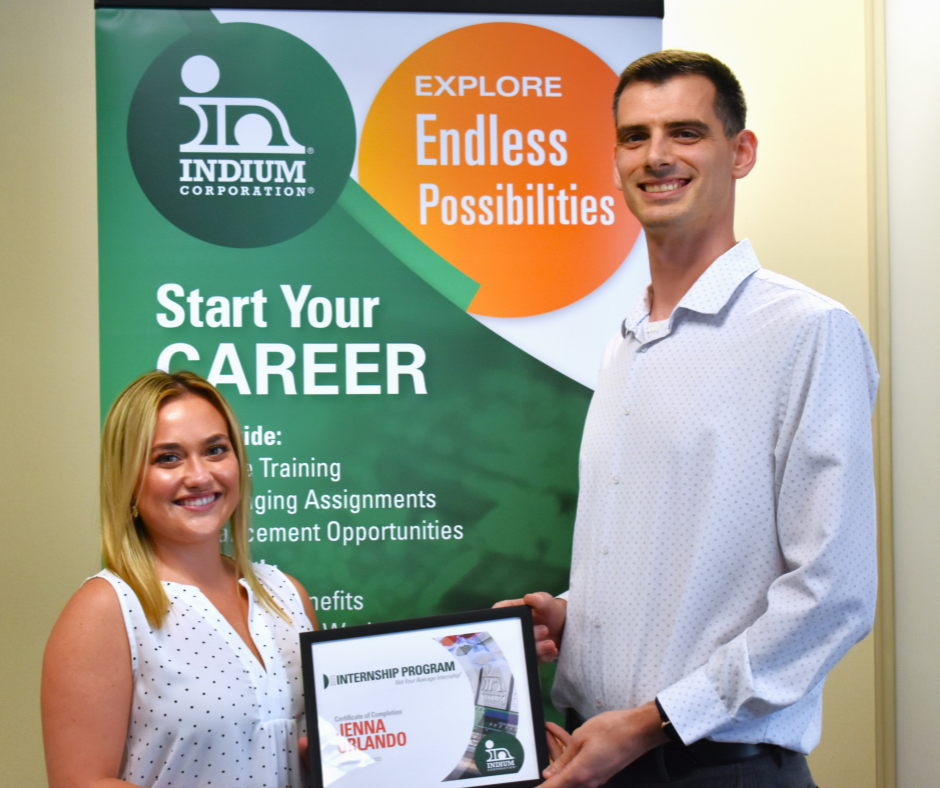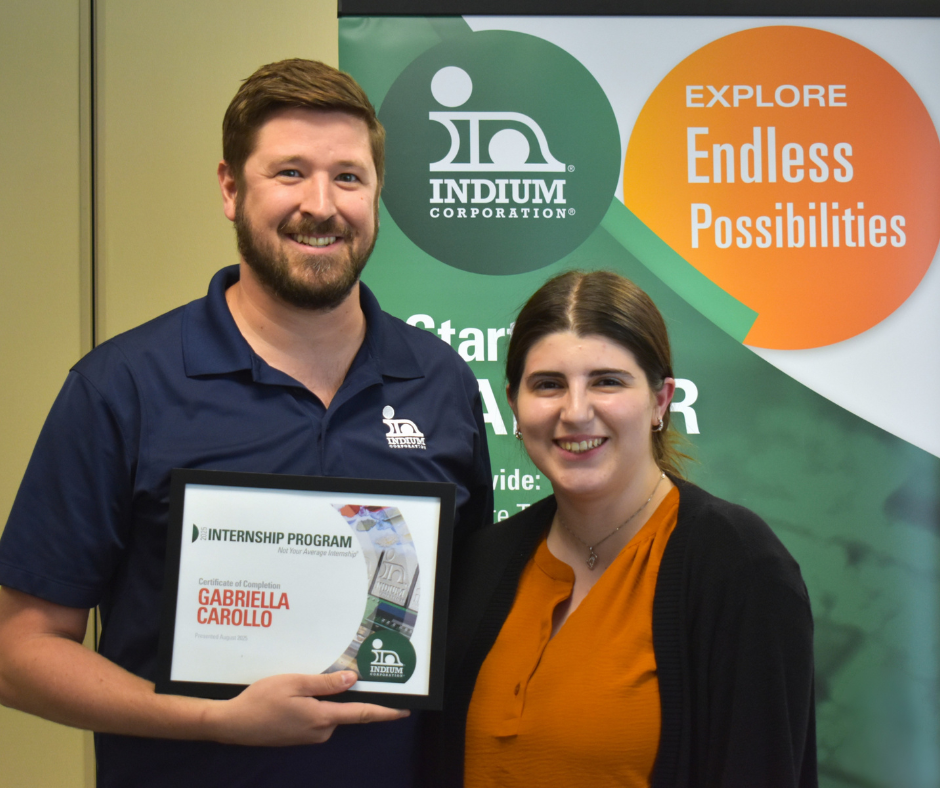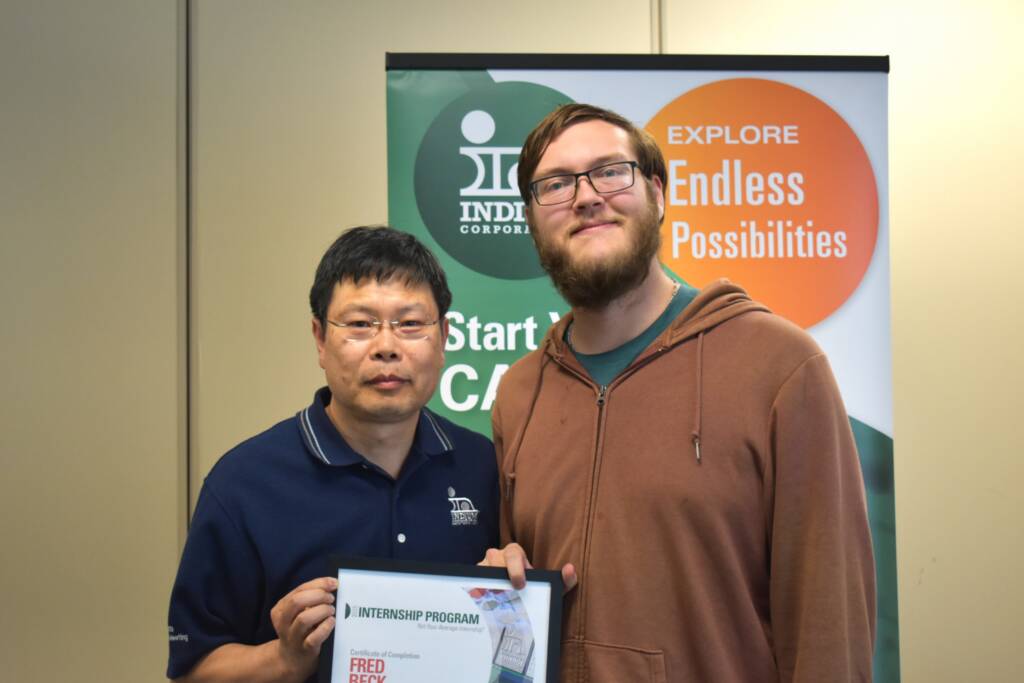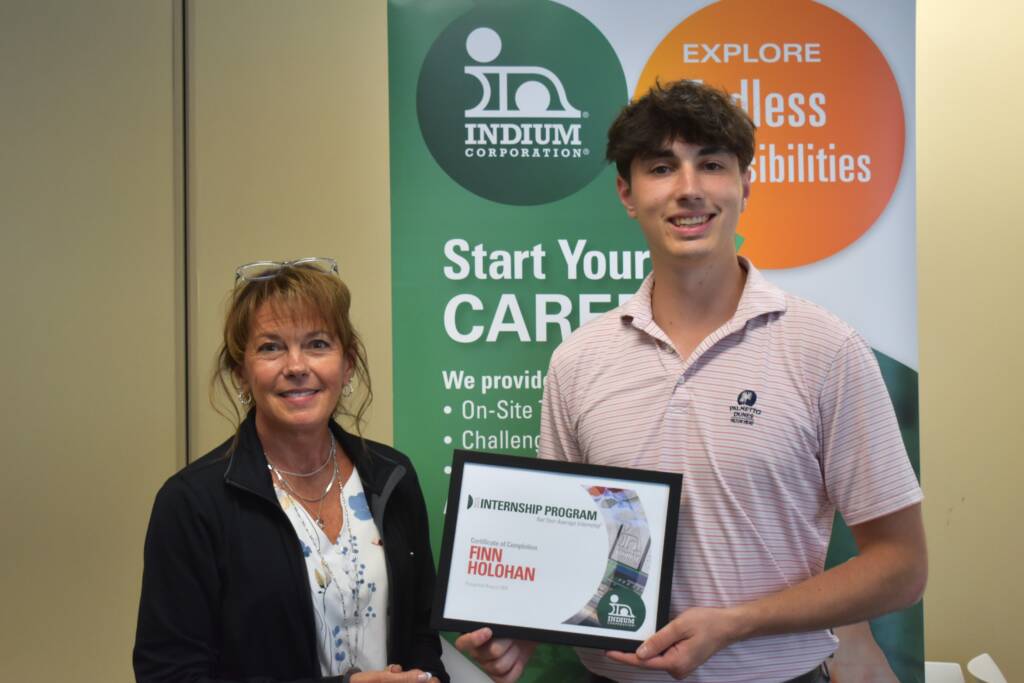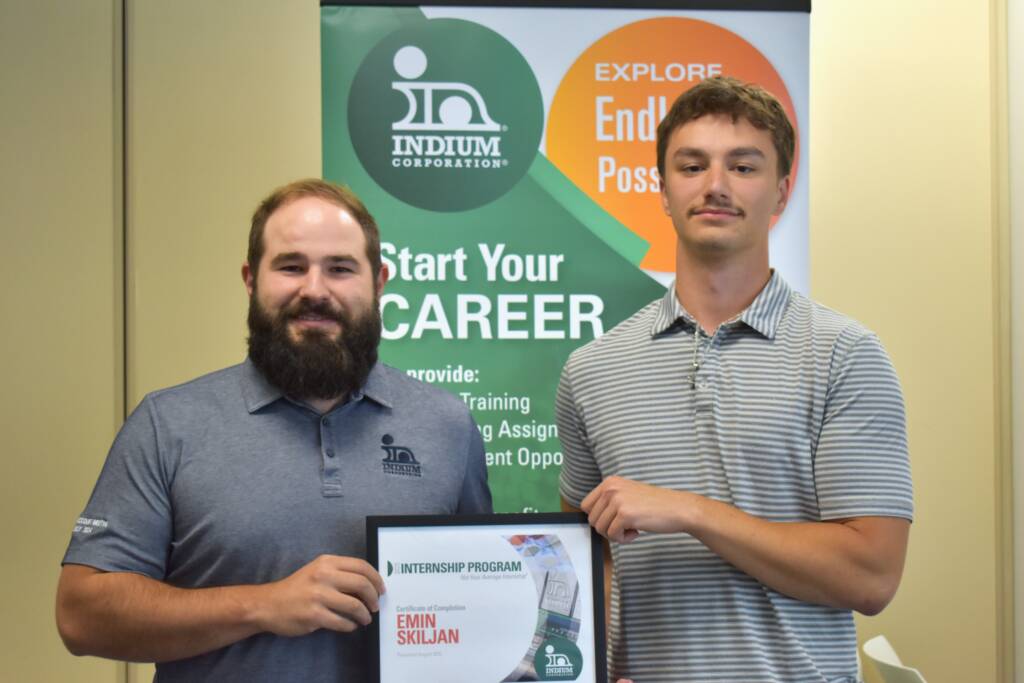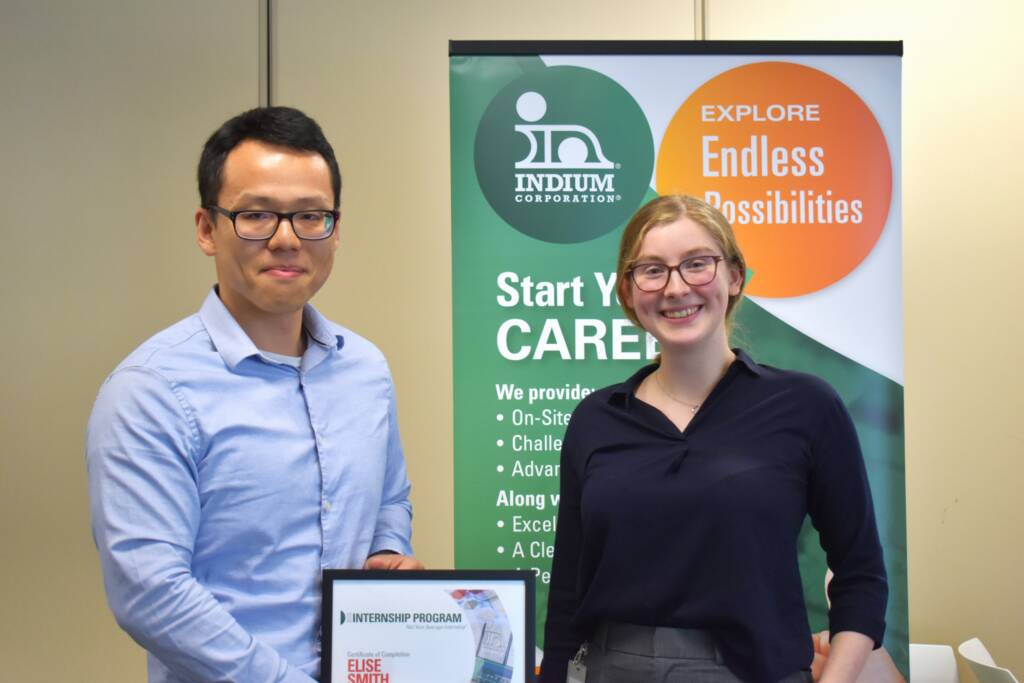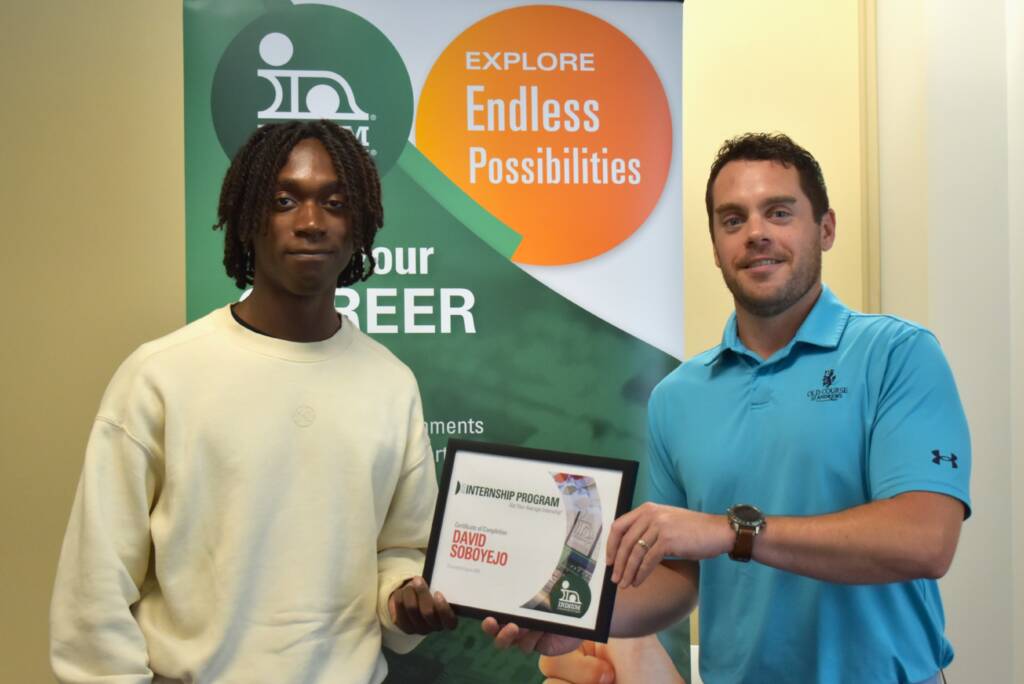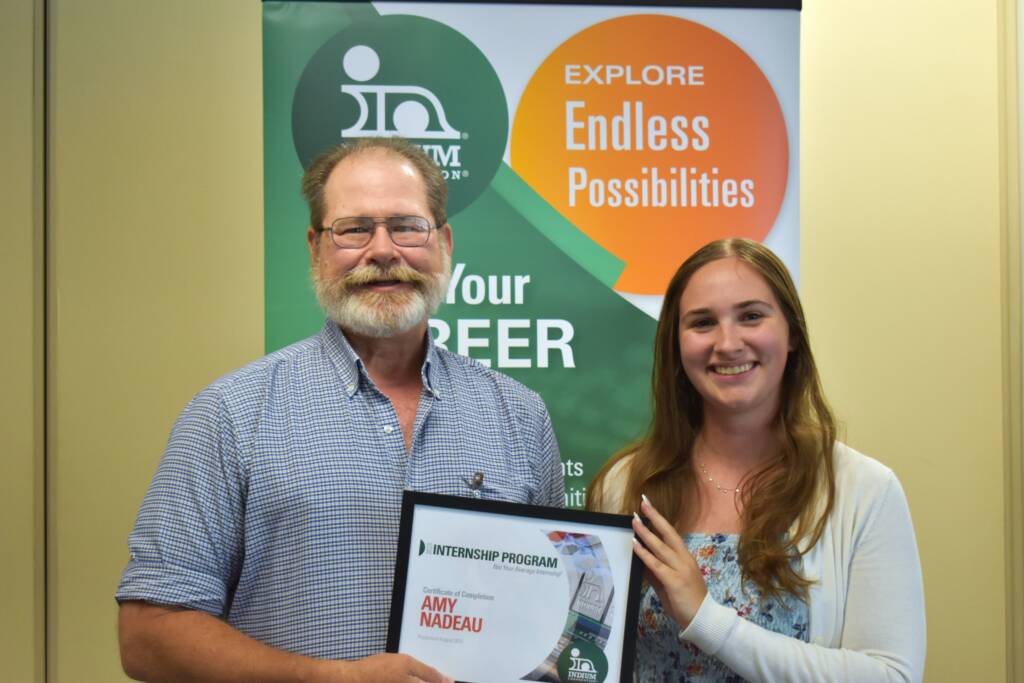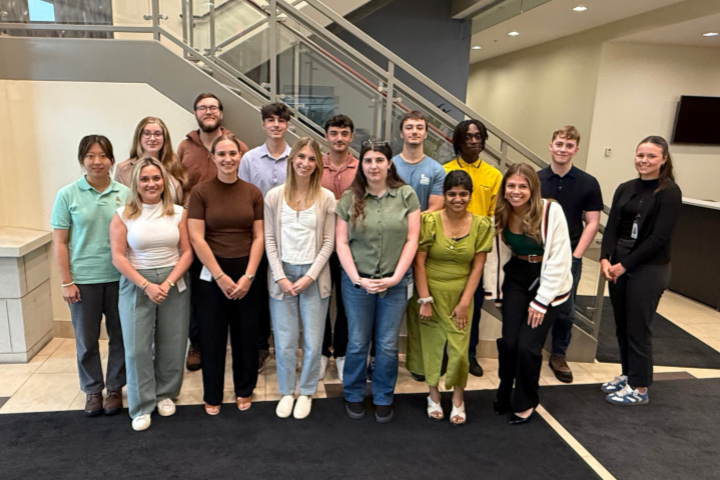Library
Internship
Topic
Type
Year
Author
Product Type
Understanding the Puzzle: A Summer in Marketing Communications
Looking back on my internship with Indium Corporation, one of the most significant lessons I’m taking with me is the importance of understanding how all the pieces of a team fit together. Long-term
My Experience Living in a Different Country
Stepping Outside My Comfort Zone Traveling more than 3,000 miles to live and work in another country is the most daunting thing I’ve ever done. Luckily, I came to work for Indium Corporation.
Pressure, Process, and Progress: An Intern’s Guide to Debugging the Workplace
Starting a professional internship is always nerve-wracking. I still remember the nervousness I felt heading into orientation day. I spent my overnight flight across the country to Utica wondering
Why I Came Back to Indium Corporation as an Operational Excellence Intern
Starting My Journey at Indium Corporation In the summer of 2024, I was looking for work and unsure where my next opportunity would come from. Fortunately, I was given the chance to work at
From Texas to Utica: Finding Strength in Change
Embracing the Unknown When I received my internship offer from Indium Corporation in March, I was ecstatic. As a graduate student pursuing Industrial and Systems Engineering at Texas A&M
Winning Strategies: How Athletics & Internships Share a Blueprint for Growth & Success
While my experience in a traditional office may be limited, my time on the lacrosse field, in the weight room, and in scouting and coaches’ meetings is anything
More Than a Manual: My Take on Creating the New Hire Playbook
When I was first told my project was to create the New Hire Playbook, I thought I was just making a simple reference guide for incoming employees. However, the experience turned into so much
My Summer as a Technical Support Engineering Intern: A Real-World Experience
When I started my summer as the Technical Support engineering intern at Indium Corporation, I expected to observe, take notes, and ease into the engineering world slowly. Instead, I was surprised by
Childhood Fascinations Become Daily Routine
For as long as I can remember, I’ve had a fascination with science. My specific interests have bounced around extensively and, at one time or another, included geology, archaeology, chemistry,
Designing My Internship at Indium Corporation: A Summer at the Intersection of Finance and Innovation
Creating My Custom Internship This summer, I had the unique chance to create a custom internship at Indium Corporation that combined my interests in business, finance, and product
The Power of Meaningful Connections
Building Significant Connections What began as a fun side project from my manager, Luanne—interviewing team members to get to know the department—has blossomed into meaningful connections with
From EHS to Applications Engineering: A Shift in Focus and Growth
My Journey into Applications Engineering In the summer of 2024, I completed an internship in environmental health and safety (EHS) at Indium Corporation, where I spent most of my time in an office
The More You Know: Learning by Doing
Embracing Growth: My Daily Learning Journey Throughout my STEM internship at Indium Corporation, not a day has gone by that I haven’t learned something new. It’s a bold claim, but I know it’s
From Game Design to Product Insight: Lessons in Adaptability
My Background and First Impressions I came into this internship with a background in game development, not entirely sure what to expect or how this experience would apply to my career
From Class to Career: Why I Chose Indium Corporation
As a mechanical engineering major and mathematics minor at SUNY Polytechnic Institute, certain company names naturally become familiar over time. One of the most prominent is Indium
The Woo Crew
As the first day of my summer internship at Indium Corporation approached, I had no idea that a personality quiz would become the key to understanding both myself and the team around
SMTA Practice Quiz
As technology continues to change and evolve, it’s important to stay on top of the field’s best
Conclusion to: Profits are Down. Could a Cheaper Solder Paste Have Caused it?
Folks, Let's see how Ivy Universitygraduate student Maria Gonzales is handling her assignment to find the lost profits a Liberty Elecronics… Maria had never been so nervous. She was going
Celebrating Women in Science at Indium Corporation!
Join us as we’re introducing our latest series, “Celebrating Women in
Interview with Intern Emily Dean
Folks, One of the great advantages of being a professor at Dartmouth College is working with the world’s best young students. However, Emily Dean is first my neighbor. I thought readers might

